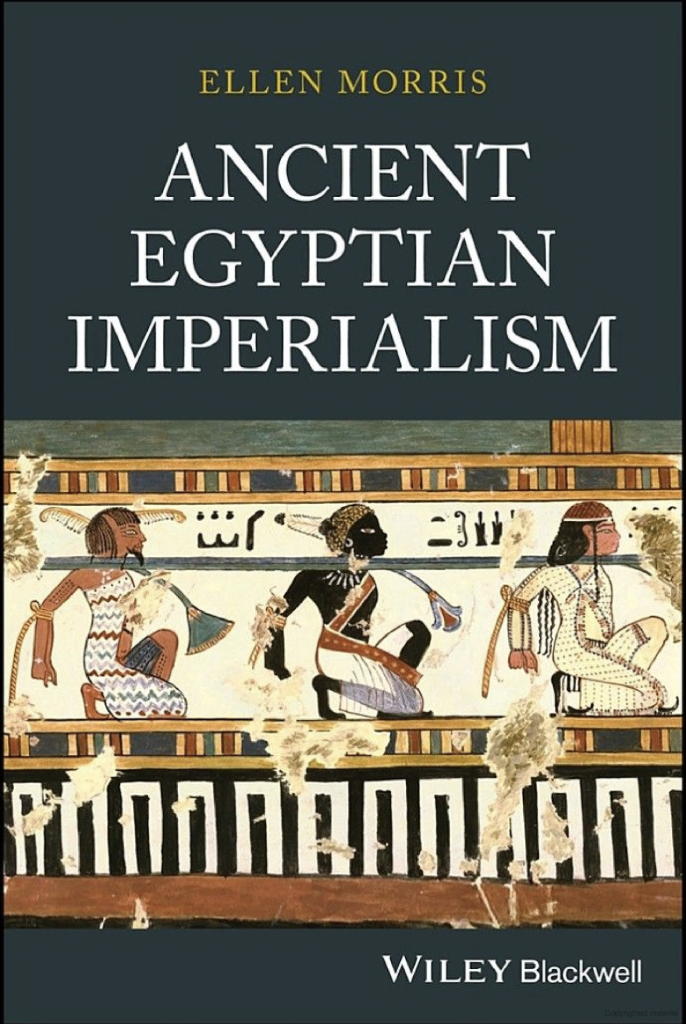Ellen Morris
Associate Professor of ANCIENT STUDIES
Chair, CLASSICAL STUDIES graduate program
(212) 854-6023
emorris@barnard.edu
efm2110@columbia.edu
219B Milbank Hall, Barnard
2024 Office hours: Thursdays, 2 p.m.–4 p.m., or by appointment
Research Interests
Ancient Egyptian social history
International relations in the Late Bronze Age
Imperialism in the Ancient Near East
Sexuality and performance
Divine Kingship
Revolts, insurgency, & societal unrest
Ellen Morris has published two books and numerous articles on issues pertinent to ancient Egyptian imperialism. Her first book is entitled The Architecture of Imperialism: Military Bases and the Evolution of Foreign Policy in Egypt’s New Kingdom (Brill, 2005). Her second, Ancient Egyptian Imperialism (Wiley-Blackwell Press, 2018), engages the work of scholars of early empires in examining various instances of Egyptian imperialism from an explicitly cross-cultural perspective.
Morris’s ongoing research interests and other publications focus on topics such as the dynamics of political fragmentation, state formation, sexuality and sacred performance, international relations and diplomacy, retainer sacrifice, and divine kingship. She has excavated in the Nile Valley at Abydos, Deir el-Ballas, and Mendes, and at the site of Amheida in the Dakhleh Oasis. Morris did her graduate work at the University of Pennsylvania and earned her B.A. from Barnard College in Ancient Studies. Classes that she teaches at Columbia University include The Archaeology of Egypt and Nubia, Egypt in the Classical World, and Identity and Society in Ancient Egypt.
Selected Publications
Books
2023
Famine and Feast in Ancient Egypt
2018
Ancient Egyptian Imperialism. Hoboken: Wiley-Blackwell Press.
2005
The Architecture of Imperialism: Military Bases and the Evolution of Foreign Policy in Egypt’s New Kingdom. Probleme der Ägyptologie 22. Leiden: E.J. Brill.
Articles and Book Chapters
2022
Reassessing the value of autobiographical inscriptions from the First Intermediate Period and “pessimistic literature” for understanding Egypt’s social history. In Ancient Egyptian Society: Challenging Assumptions, Exploring Approaches, ed. K. Cooney, N. Ben-Marzouk, and D. Candelora. New York: Routledge.
Daggers and axes for the queen: considering Ahhotep’s weapons in their cultural context. In The Treasure of the Egyptian Queen Ahhotep and International Relations at the Turn of the Middle Bronze Age (1550 B.C., eds. G. Miniaci and P. Lacovara. Middle Kingdom Studies 11, London: Golden House Productions, 165-186.
2020
Machiavellian masculinities: historicizing and contextualizing the “civilizing process” in ancient Egypt. Journal of Egyptian History 13.1-2. Special Issue: “Egyptology and Global History,” 127-168.
Writing trauma: Ipuwer and the curation of cultural memory. In “An Excellent Fortress for His Armies, a Refuge for the People”: Egyptological, Archaeological, and Biblical Studies in Honor of James K. Hoffmeier, eds. R. E. Averbeck and K. L. Younger, Jr. University Park, PA: Penn State University Press/Eisenbrauns, 231-252.
2019
Ancient Egyptian exceptionalism: fragility, flexibility and the art of not collapsing. In The Evolution of Fragility: Setting the Terms, ed. N. Yoffee. Cambridge: McDonald Institute for Archaeological Research, 61-87.
2018
Théorie insulaire et affordances des oasis du désert égyptien, trans. Lise Garond. In Mer et désert de l’Antiquité à nos jours: visions croisées, ed. G. Tallet and T. Sauzeau. Rennes: Presses Universitaires de Rennes, 63-90.
2017
Middle Kingdom clappers, dancers, birth magic, and the reinvention of ritual. In Company of Images: Modelling the Imaginary World of Middle Kingdom Egypt (2000-1500 BC), ed. Gianluca Miniaci, Marilina Betrò, Stephen Quirke. Leuven: Peeters Publishers, pp. 285-335.
Prevention through deterrence along Egypt’s northeastern border. Or the politics of a weaponized desert. Journal of Eastern Mediterranean Archaeology and Heritage Studies 5.2: 133-147.
2015
Egypt, Ugarit, the god Ba’al, and the puzzle of a royal rebuff. In The Crossroads II, Or There and Back Again. Proceedings of an International Conference on the Relations of Egypt and the Near East in the Bronze Age, Prague 15-18, 2014, ed. J. Mynářová. Prague: Charles University in Prague, Faculty of Arts, pp. 315-351.
Exchange, extraction, and the politics of ideological money laundering in Egypt’s New Kingdom Empire. In Policies of Exchange: Political Systems and Modes of Interaction in the Aegean and the Near East in the 2nd Millennium B.C.E., Proceedings of the International Symposium at the University of Freiburg Institute for Archaeological Studies, 30th May-2nd June 2012, ed. B. Eder and R. Pruzsinszky. Oriental and European Archaeology v. 2. Vienna: Austrian Academy of Sciences Press, pp. 167-190.
2014
Mitanni enslaved: prisoners of war, pride, and productivity in a new imperial regime. In Creativity and Innovation in the Reign of Hatshepsut, eds. J. Galán, B. M. Bryan, and P. F. Dorman. Chicago: University of Chicago Press, pp. 361-379.
(Un)Dying loyalty: meditations on retainer sacrifice in Ancient Egypt and elsewhere. In Violence and Civilization: Studies of Social Violence in History and Prehistory, ed. Rod Campbell. Oxford: Oxbow Books, pp. 61-93.
2013
Propaganda and performance at the dawn of the state. In Experiencing Power, Generating Authority: Cosmos, Politics, and the Ideology of Kingship in Ancient Egypt and Mesopotamia, ed. J. A. Hill, et al. Philadelphia: University of Pennsylvania Museum Press, pp. 33-64.
2011
Paddle dolls and performance in ancient Egypt. Journal of the American Research Center in Egypt 47: 71-103.
2010
Insularity and island identity in the oases bordering Egypt’s Great Sand Sea. In Thebes and Beyond: Studies in Honour of Kent R. Weeks, ed. Zahi Hawass and Salima Ikram. Cairo: Supreme Council of Antiquities Press, pp. 129-144.
The pharaoh and pharaonic office. In The Blackwell Companion to Ancient Egypt, ed. A.B. Lloyd. Oxford: Blackwell, pp. 201-217.
Opportunism in contested lands, B.C. and A.D. Or how Abdi-Ashirta, Aziru, and Padsha Khan Zadran got away with murder. Millions of Jubilees: Studies in Honor of David Silverman, vol. I, ed. Zahi Hawass and Jennifer Houser Wegner. Cairo: Supreme Council of Antiquities Press, pp. 413-438.



